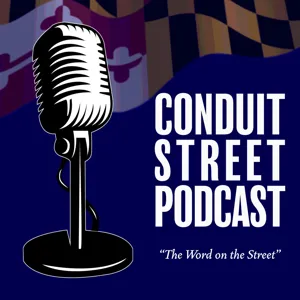On the latest episode of the Conduit Street Podcast, Everett Sesker joins Kevin Kinnally, Natasha Mehu, and Michael Sanderson to discuss the state of policing. Topics include implicit bias, Maryland's Law Enforcement Officer's Bill of Rights (LEOBR), the "defund the police" movement, community policing, and how new technology is playing a major role in how police serve and protect the community.
Everett Sesker, a law enforcement consultant at the Local Government Insurance Trust (LGIT), trains police officers to understand and overcome implicit bias, as well as assesses and identifies potential risks that may hinder the reputation, safety, security, and operations of law enforcement agencies across Maryland.
Mr. Sesker retired at the rank of Major from the Prince George’s County Police Department after 22 years of service. He has held command positions in training, narcotics, community relations, district stations, headquarters, and public relations.
Prior to joining LGIT, Sesker was appointed as the executive director of the Maryland Police Training and Standards Commission where he worked closely with law enforcement leaders and policymakers to oversee and improve the accreditation process for police officers.
LGIT is a member-owned association authorized by state law, wholly-owned and managed by its local government members. The Trust’s main purpose is to provide joint self-insurance programs or pools for towns, cities, and counties in the state of Maryland. The concept is simple – rather than paying premiums to buy insurance from an insurance company, local governments contribute those premiums into a jointly owned fund. The money in that fund is used to pay for the members’ claims, losses, and expenses.
The LGIT Training Grant Program assists Trust Members who wish to increase and improve their employees’ knowledge through training and thereby reduce liability claims and property damage. Training grants are awarded to attend seminars, workshops, conferences, technical classes, or other related training programs. For more information, visit LGIT’s website.
MACo has made the podcast available through all major platforms by searching Conduit Street Podcast. You can also listen on our Conduit Street blog with a recap and link to the podcast.
You can listen to previous episodes of the Conduit Street Podcast on our website.
Useful Links
Previous Conduit Street Coverage: Speaker Announces House Work Group on Police Reform and Accountability
Previous Conduit Street Coverage: Judicial Proceedings Chairman to Introduce Police Reform, Accountability Legislation
Previous Conduit Street Coverage: Congressional Leaders Propose Broad Police Reforms Through Justice in Policing Act
Previous Conduit Street Coverage: City Council Makes Cuts to Police Budget
Previous Conduit Street Coverage: Baltimore County Pursues Police Reform Package
